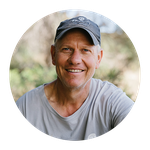Sea Shepherd's Remote Beach Clean-up at Anindilyakwa
Untrashing Anindilyakwa

Anindilyakwa / Groote Eylandt is a a remote island in the Groote archipelago that lies 50 kilometres off the East coast of Arnhem Land in the Northern Territory. It is home to magnificent beaches, turquoise waters and the largest Hawksbill and Green sea turtle rookeries in the state.
But a toxic wave of plastic pollution is threatening to destroy the island's delicate coastal and marine environments.
Each year, a torrent of ghost nets and discarded fishing gear as well as other consumer plastics wash onto these once-pristine beaches, polluting the cultural lands of the Anindilyakwa People and killing precious marine life and sea birds.
In August 2022, a team of seven Sea Shepherd Marine Debris Crew travelled to Anindilyakwa to join the Anindilyakwa Land and Sea Rangers in the vital work they do to protect Country and remove harmful plastic debris from their coastline.
Watch the video below to find out more.

In total, the team removed over 4 tonnes of marine debris from 26 kilometres of the coastline, equating to roughly 100,000 pieces. By removing this trash, we have provided immediate relief to the turtles, birds and marine life that call Anindilyakwa home.
The top ten items removed were:
1. Hard plastic bits and pieces
2. Thongs
3. Bottle tops and lids
4. Lighters
5. Water and soft drink bottles
6. Fishing floats
7. Plastic personal care bottles
8. Plastic oil containers
9. Ropes
10. Glass bottles
Read updates from the clean-up from Sea Shepherd's Remote Marine Debris Campaigner, Grahame Lloyd.
Take a look at images from our remote clean-up at Anindilyakwa

Anindilyakwa is an internationally significant site for the nesting of marine turtles, especially the Critically Endangered hawksbill turtle and Endangered green turtle.
Every day during the clean-up, our team was removing dozens of plastic items that all showed signs of turtles having mistaken the plastic for food and ingested it. Ingestion of plastics by turtles can lead to float syndrome and long and painful deaths.
Research shows that a high density of plastic and large objects on nesting sites deter turtles from coming ashore or nesting.
Our crew saw numerous turtle tracks where they had made their way up the beach to nest while negotiating their way around or through plastic on the beach. Some looked like they had nested while others returned to the water having not laid any eggs potentially due to the amount of debris on the beach.

Anindilyakwa Land & Sea Rangers manage an Indigenous Protected Area of 10,000 square kilometres of islands, reef and ocean in the azure waters of the Groote Archipelago. Rangers undertake management activities guided by their deep connection to traditional culture and combine that with the latest western science and technology across both the land and sea.
The Rangers on the Groote Archipelago play an extremely vital role in protecting the environmental, cultural and social values of the Archipelago and the people who live here.
Throughout the dry season, Anindilyakwa Land and Sea Rangers carry out clean-ups every week, however, a constant barrage of disposable - often single-use - plastic products keep washing up on their coastline. These Rangers shouldn't be burdened with the task of removing the epidemic of plastic pollution caused by irresponsible plastic producers.

"We need to turn off the tap on plastic pollution and the producers need to be held accountable and produce better-designed products that can be reused or repurposed at the end of the product's life."
- Sea Shepherd Remote Marine Debris Campaigner, Grahame Lloyd.
Acknowledgements
Working together with Anindilyakwa Land and Sea Rangers, our Sea Shepherd crew tackled four of the worst affected beaches on the island. These beaches were located in three different clans' countries with two of these beaches being on closed lands.
Sea Shepherd would like to acknowledge and thank the Traditional Custodians for allowing us access to their Cultural Lands including 8 Mile Beach (Mamarika country), South Point (Wurrawilya country), 6 Mile Beach (Yantarrnga country) and Picnic beach (Yantarrnga country).